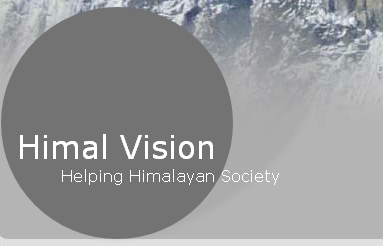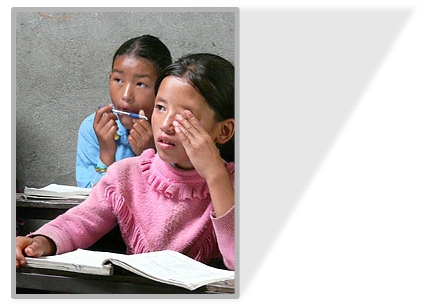

Copyright © Himal Vision: Christoph Seiffert, Switzerland

Local School Project Nepal


Most of Nepal’s mountain people are speaking a Tibetan dialect.
Most of Nepal’s teachers are coming from the Nepali speaking parts of the country. They cannot speak any Tibetan. So school for the children is very difficult right from the start.
Furthermore teachers are very bad paid. The salary is not enough to feed a family. That means teachers usually have to have a second job. Therefore they only teach if they have time. So some days the schools are not opened.
A lot of the teachers come from the lower places of Nepal and feel homesick.
They also miss their own families, friends, language and culture. They stay in a different world far away from home. Some of them become alcoholics and teach whenever they feel like it. Others are very committed teachers and bring their classes to a good level.
During 6 days a week classes should be from 10:00 a.m. – 01:00 p.m. and 02:00 p.m. – 04:00 p.m.
The schedule includes Nepali, some basic English and mathematics. Tibetan language and art & culture in general are not being taught at all.
In Nepal attendance of school is free of charge, but that doesn't mean that there are no costs for education remaining.
Parents have to pay for:
-
-
-
-
From 5th class on:
-
Therefore many poor families cannot afford to provide even basic education for their children. As well many of them need their children’s labour for the family’s daily needs. These children are working in fields, households or they are being sent somewhere else for labour.
There is a big difference between touristy areas and regions without tourism.
Most of the individual trekkers in Nepal were asked more than once to sponsor a child’s education. If a family finds a sponsor the child is usually sent to a school in Kathmandu.
The education level of public village schools is very low.
The children then find themselves in a completely different culture with an unfamiliar language and customs. After years of separation they are strangers, coming home. They are not integrated into the village’s social structures, so most of them will never be able to make their living up there.
Considering that Nepal’s economic situation is very poor and the unemployment rate is very high, it is easy to understand that a lot of even well educated people are struggling hard for find work.
At home the parents are getting older and come in need for someone to care for them.
Even if the children come back home to support them, they have no knowledge on farming and animal care which is the basis of village life.
There are villages with no children of school age living there, because all of them stay in Kathmandu being lucky enough to have found a sponsor.
Considering the over-
It is Himal Vision’s wish to change the locals attitude of the individual search for support into a supportive society.
Therefore:
1. The people in the villages have to understand the benefit of the local schools improvement.
2. They have to find ways to communicate their needs to visitors.
3. They have to find effective and honest people to manage raised fund.
On that basis they can pay well trained teachers for further subjects to complement the proposals of their local public schools.
The children then could stay at home and grow up in their own culture and learn everything related to the mountain village life.
This is clearly a future goal for us. At the moment we have our focus on finding enough financial support for the orphans and elders we care for.